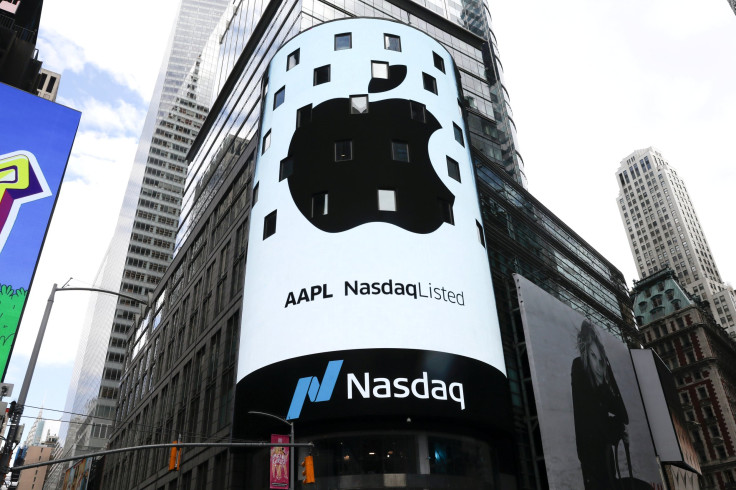Is Apple Facing A Services Slowdown In 2019?

In light of recent events, investors have been leery of Apple (NASDAQ:AAPL). The combination of slowing iPhone growth and word that the company will discontinue providing unit sales metrics for the device sent the company stock plummeting from all-time highs, with shares down 25% since early October.
This article originally appeared in The Motley Fool.
The reason Apple shares haven't fallen further, some would argue, is the company's ambitious goal to rely more heavily on its services business. Early last year, CEO Tim Cook announced plans to double Apple's fiscal 2016 services revenue by 2022. The company has made steady progress toward that, which reassured investors that Apple's growth could continue.
At least one analyst is raising a red flag, however, saying that Apple's services segment could decelerate next year.
The analyst
Benjamin Schachter of Macquarie Research has been bullish on Apple in the past, but he's become more cautious going into 2019, cutting his price target on shares from $222 to $188. In a note to clients, he cited several factors that could drag on Apple's services segment going into 2019.
Over the past three years, licensing, the App Store, and Apple Care were the biggest contributors to Apple's services growth, but Schachter sees that decelerating in the coming year as a result of strong current year sales which will make comparable sales growth expansion tougher next year. At the same time, Apple Music, iCloud, and Apple Pay, which are growing more quickly, aren't big enough to make up the difference.
A freeze in China
The Asia Pacific (APAC) region, and China in particular, have been significant contributors to Apple's results over the past several years. A review of the company's most recent quarter shows that more than 23% of Apple's sales were generated in the region.
Schachter said that while "the strength of APAC has been a tailwind," he believes the momentum could turn in 2019, primarily as a result of China's moratorium on new video game approvals.
To put his view into context, China is one of the world's largest gaming markets, but has frozen approvals for new titles, with no new approvals granted since March. This comes as the Chinese government works to implement new restrictions on the industry, including limiting the total number of online video games, placing age-appropriate restrictions on titles, and limiting the amount of time minors spend playing games.
Schachter said that APAC accounted for nearly 60% of App Store sales last year, but if the gaming freeze lingers into next year, it will "become a more prominent drag on new game spending" in 2019.
Another all-too-obvious complication, though one he didn't mention, is the ongoing trade negotiation, as leaders in Beijing and Washington work on an agreement which will reduce current and upcoming bilateral tariffs. Apple has thus far managed to avoid being dragged into the fray, but President Trump has threatened tariffs of 25% on about $200 billion of Chinese goods come Jan. 1, which could include products like the iPhone, which is manufactured in China.
All about the iPhone?
No one disputes that Apple has been working overtime to reduce its reliance on the iPhone, which accounted for more than 62% of its revenue in fiscal 2018. The services segment has grown to account for nearly 16% of revenue last quarter, up from 13.5% just two years ago.
It should be pointed out that if the feared slowing of iPhone growth comes to pass, this could also hurt services -- fewer iPhones mean fewer customers to sell services to.
The undiscovered country
Apple's foray into original television shows and movies has many tongues wagging about a potential entry into streaming video. In mid-2017, Apple poached Sony alums Jamie Erlicht and Zack Van Amburg to head up its video programming efforts. At the time, Apple executive Eddy Cue commented (emphasis mine): "We have exciting plans in store for customers and can't wait for [Erlicht and Van Amburg] to bring their expertise to Apple. There is much more to come." The company has been mum about how it will leverage the library of original content it's building, but knowing Apple, it will likely be lucrative.
Even considering the growing number of options in the field, streaming video could add a meaningful bump to Apple's subscription business. One analyst calculated that entering the streaming market could result in a revenue boost for Apple of as much as $37 billion over the next several years.
In spite of the challenges it faces, I wouldn't be too quick to count Apple out. The company has many levers to pull and myriad opportunities that have yet to be factored into analysts' spreadsheets.
The Motley Fool has a disclosure policy.





















